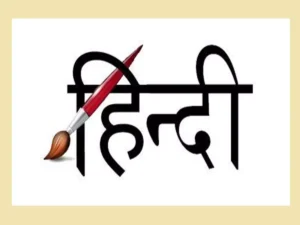
In a significant move aimed at enhancing the accuracy and inclusivity of birth registration processes, the Ministry of Home Affairs has introduced Model Rules mandating the separate recording of parents’ religions in birth certificates for newborns. This departure from the previous practice, where only the family’s religion was noted, marks a pivotal step towards ensuring greater individual identity documentation.
Under the proposed regulations, both the father and mother of a newborn will be required to specify their respective religions during the birth registration procedure. This crucial information will now be incorporated into birth registers, reflecting the diverse religious landscape of the nation more comprehensively. Moreover, this requirement will extend to adoption cases as well, ensuring consistency and inclusivity across various circumstances of birth registration.
For the new guidelines to take effect, state governments are tasked with the responsibility of notifying and implementing these rules within their jurisdictions. This decentralization ensures adaptability to regional sensitivities and administrative frameworks, promoting effective enforcement and compliance.
The impetus for these changes stems from the recent legislative developments in the domain of birth registration. The Registration of Births and Deaths (Amendment) Bill, 2023, which received parliamentary approval during the last Monsoon Session, serves as a cornerstone for modernizing and streamlining birth registration processes. Among its provisions, the Bill recognizes the birth certificate as a multifunctional document, facilitating access to essential services and entitlements such as educational admissions, driving licenses, voter registration, Aadhaar enrollment, marriage registration, and government employment.
Furthermore, the Bill lays the groundwork for digital transformation by enabling digital registration and electronic issuance of birth and death certificates. By leveraging technology, the initiative aims to establish comprehensive national and state-level databases of registered births and deaths. This centralized repository not only enhances data accuracy and accessibility but also serves as a catalyst for updating interconnected databases, thus enhancing the efficiency and transparency of public service delivery and social welfare programs.
In alignment with the evolving landscape of identity documentation, the Bill also incorporates provisions for collecting Aadhaar numbers of parents during birth registration. This integration with the Aadhaar ecosystem facilitates seamless interoperability with various government databases and promotes the authentication and verification of identity records with enhanced reliability and security measures.
Beyond the immediate implications for administrative procedures, these reforms signify a broader commitment to upholding individual rights and fostering social inclusion. By acknowledging and documenting the diversity of religious affiliations within families, the birth registration process becomes more reflective of the pluralistic fabric of Indian society. This, in turn, reinforces the principles of equality, dignity, and recognition of individual identity, laying the foundation for a more inclusive and harmonious future.
In conclusion, the introduction of separate recording of parents’ religions in birth certificates signifies a paradigm shift towards more nuanced and inclusive identity documentation practices. Anchored in legislative reforms and enabled by technological advancements, these measures not only enhance the efficiency and transparency of administrative processes but also uphold fundamental principles of individual rights and social inclusion.





